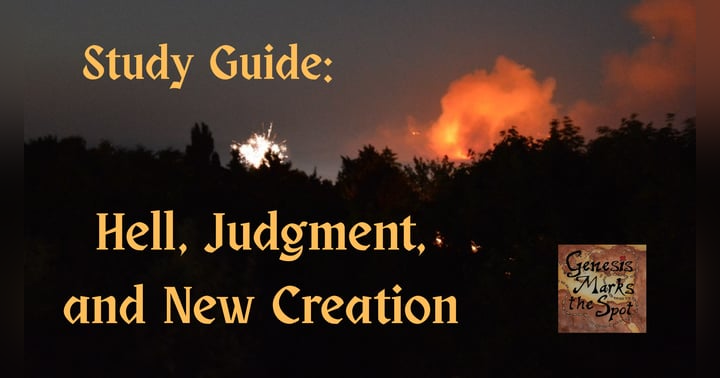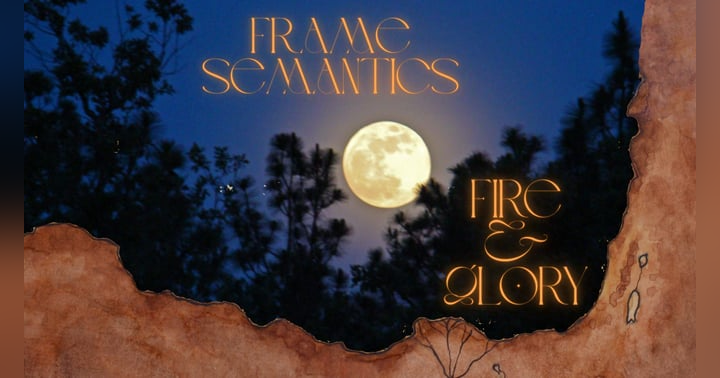Stopwatches and Scripture: Defending a Literal 6 Days

Ahh, but the question is, which literal? ...
...
I thought I’d tackle a critical question today that I’ve been asked more than once, and oddly almost in similar wording each time.
Critic: “Why don’t you take Jesus seriously when He quoted Exodus 20 in reference to the days of creation?”
Really, it’s a fair question…well, aside from the fact that Jesus doesn’t actually quote Exodus 20. But he does refer to the Sabbath, so let’s just presume that in various statements that Jesus makes, he is affirming the seven day creation.
So let me be clear from the start, for those who may read this who are new to my work: Yes, I do take Scripture “seriously” and I even read it “literally.” I affirm that the Bible is divinely inspired, trustworthy, and authoritative. It is the revelation that is given for the world. But to honor the Bible well, we have to ask not only what it says, but how it says it—and why.
In other words, we need to read it in context. (You knew I was going to say that, didn’t you?)
For in six days the LORD made heaven and earth, the sea, and all that is in them, and rested on the seventh day. Therefore the LORD blessed the Sabbath day and made it holy.
That’s Exodus 20:11, from the first reading of the Ten Commandments. This is obviously connecting the seven days of creation with the rhythm of Sabbath for the people. Jesus would likely cite this to uphold the significance of Sabbath rest, like any first-century Jew would. But would he be making a scientific statement about the duration of creation?
Just like in our exploration of the historicity of Adam (linked here is the first post in that series if you’ve missed it), we need to be aware that our version of “accurate science” is not the ancient world’s version of “accurate science.” And, by “science,” they really didn’t even mean “science." They were obviously describing and understanding the world, though. And we should recognize that process. And so I have no problem whatsoever in saying that the biblical author and audience would, in fact, be "believing" some "literal" things about creation. But they'd be doing it in their own world.
Certainly in the use of this passage, an ancient Jew would be drawing on the theological structure of the Genesis creation account, a structure deeply rooted in the symbolic and liturgical patterns of ancient Israel. This would be something very "real" and very important. But it might not be how we are thinking with our precision clocks and calendars.
Concordism vs. Literary-Theological Reading
Concordism is the idea that the Bible--especially Genesis--can and should match up with what science tells us about the world. People who take a concordist view often try to “bridge the gap” between Scripture and scientific models. An example is like saying each day of creation could represent a long age of time. Or concordism could simply be the idea that the length of the days of creation are twenty-four hour periods of time. It’s an attempt to harmonize faith and science on the timeline of creation.
To clarify my own position: I don’t personally care for a day-age interpretation (again, where each “day” represents an epoch), nor do I follow other concordist models that try to match the Genesis account with modern scientific timelines, whatever those look like. That doesn’t mean I look down on those who do take such interpretations. There are faithful Christians who read the text that way with integrity. But I don’t believe Genesis 1 is a modern science textbook, or that it ever intended to be one. And I’m serious about that claim. Any “science” in it is strictly ancient descriptions and understandings of the world. And these are not the points of teaching being given. We don’t need to believe that we think with our livers.
You know, I can understand where concordists come from, and it's totally normal, but most every point in time has its concordist reading, and it always has to change once knowledge changes. It's why you see the interpretations by the rabbis. It's why you see the theology of the Reformation. It's why you have ideas in response to <insert current thing>. The problem with concordism is that you're interpreting through your own lens with your current information and methods of processing the world. But your current information is going to be wrong and on top of that, your ways of processing are unique. That might not mean your basic idea is wrong, but when you learn something else or adjust your understanding in some way, then you also need to change your interpretation. It's a moving target.
Science is supposed to be falsifiable, which makes it uniquely BAD for using as an interpretive lens for Scripture. Marrying science and biblical interpretation means you either can't do science (a young earth creationist cannot falsify their claims) or you can't have a stable interpretation through time (if your claim is falsified, you need to adjust your interpretation).
So, what do I think? I believe there are multiple valid interpretive paths. What's valid? As long as it arises from a high view of Scripture and it’s rooted in thoughtful, informed engagement with the text, then I say that fits the bill. Of course, not all valid interpretations are accurate, but that’s another conversation. (Guess what, no one has a perfectly accurate interpretation across the board. Somehow things work out okay, even so.) Anyway, as I say: the possibility of a literal, concordist seven-day creation is a valid interpretation. But so are other readings that take literary genre, ancient cosmology, and theological intent into account.
Here's the kicker: The meaning of the text is inspired—not necessarily our interpretation of it. And that’s an important distinction. We’re not infallible. The “plain reading” of Scripture is often more influenced by our own cultural assumptions than we realize. We bring our modern categories--science, chronology, material origins--to a text that was written in a very different intellectual and theological environment.
The Bible Is a Book with Layers
At its core, the Bible is a work of literature. That doesn’t mean it’s fictional; it means it has form, genre, and structure. It uses figurative language, poetic parallelism, and symbolic numbers to communicate theological truths that go far beyond bare historical reportage. The human authors who were writing down the text used these literary devices and had an idea of history that corresponded to the common knowledge of the day.
Genesis 1, for example, isn’t written like a modern historical document. It has a highly structured and stylized form: seven days, matching pairs of realms and rulers (days 1–3 forming environments, days 4–6 filling them), and a strong rhythmic cadence. All of that signals that this text is not simply recounting what happened--it’s also chock full of explaining what it means. How nice of them to do that. I happen to think what it means is far, far more important than record-keeping. Call me crazy...
Take the number seven. In the ancient Near East, seven signified completeness, divine order, and covenantal fullness. That’s why temples were often dedicated in seven-day rituals. That’s why the seventh day, the Sabbath, is holy. And that’s why Genesis 1 ends not just with “rest,” but with God taking up residence in His creation.
Creation as Temple: The Bigger Story
Genesis 1 isn’t just about how the world was made, it’s about why God made it. The creation narrative closely parallels ancient temple inauguration texts. The message is clear: God is not just making a world--He’s making a sanctuary. The cosmos itself is designed to be the place where He dwells with his creation.
This helps explain why the seventh day in Genesis doesn’t have the usual refrain “and there was evening and there was morning.” It’s left open. Why? Because the seventh day isn’t meant to end. It’s an ongoing state of divine presence, of God “resting” not because He’s tired, but because His temple is complete, and He is now present within it.
That’s the theological gold of Genesis 1. It’s not non-historical...but it’s more than chronology.
Dual Authorship and Divine Accommodation
One of the core doctrines of inspiration is what theologians call dual authorship. God is the ultimate author of Scripture, but He worked through human authors situated in specific cultures, languages, and worldviews.
And here’s the important part: God never once felt the need to correct the scientific or cosmological assumptions of the ancient world. He didn’t download advanced physics into Moses. He didn’t give Isaiah a heliocentric model of the solar system. And He certainly didn’t teach the Genesis author about tectonic plates or DNA.
Instead, He accommodated His revelation to their understanding, just as He does to ours. This isn’t God being deceptive. We have a God who speaks in ways that can be understood, without demanding a level of knowledge that wasn’t available yet. And so, because the Bible’s primary purpose is not to teach us science, but to teach us who God is, who we are, and what the world is for, that means that the communication being given about creation isn’t about data.
Where the Real Weight Lies
So do I believe in a historical Adam? Sure, I don't have a problem with it. But I am not going to insist that "literal historicity" is what I think it means. What matters to me, instead, is what the ancient person thought. They wrote the words on the page, after all.
Whether the world was created in seven literal 24-hour days, or in some other timeline, the core message remains: God made the world with purpose, beauty, and order, and He made it to be His dwelling place with us.
In fact, I’d argue that understanding the symbolic, literary, and theological structure of Genesis 1 enhances our appreciation for what the text is doing. That’s why this question is deeply related to the larger discussion about Adam, human origins, and the theological framework of creation. Genesis 1 and 2 lay the groundwork not just for anthropology, but for Christology--for understanding what it means that God came to dwell with us in the person of Jesus, and that He now dwells in us by the Spirit.
I don’t personally get all hot and bothered about the days of creation because the real treasure of Genesis 1 is not its timeline, but the theology. I was almost a science major once, so the science questions are interesting, but these days I don't care one bit how long it took, really. I do care about what is God saying about Himself, about us, and about the world He made, though.
And, as I like to say: that story begins not in Genesis 3 with sin, but in Genesis 1.....with purpose, with blessing, and with divine presence.








